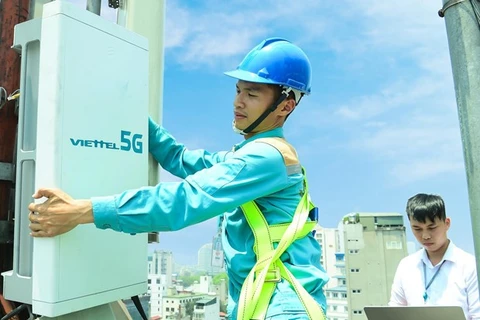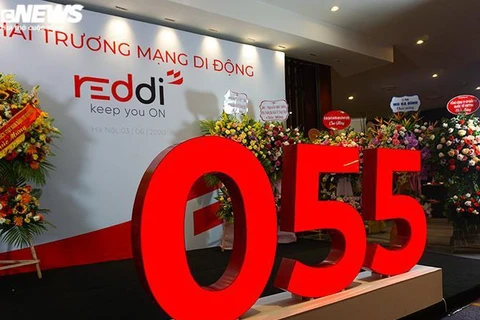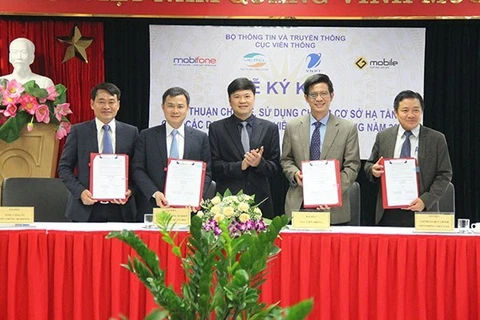Hanoi (VNS/VNA) - Experts forecast despite being relatively new in Vietnam, network sharing efforts would accelerate as the Government seeks to streamline network deployments and slash capital spending.
Vietnam’s four State-owned mobile operators – Viettel, Vinaphone, GMobile and MobiFone – this month agreed to share about 1,200 base transceiver stations (BTS). This follows a deal struck in May between Vinaphone and MobiFone, which agreed to share infrastructure for 700 new BTSs.
Network sharing is still a relatively new concept in the Vietnam telecom market. Operators have largely pursued synchronous deployments of their networks, which has led to a significant duplication of infrastructure. The trend is especially pronounced in densely-populated urban areas, where the rapid construction of mobile masts has also led to safety and environmental concerns from the Government.
The Ministry of Information and Communications (MIC) late last year published Directive No 52/CT-BTTTT, which highlighted the need for fixed and mobile operators to coordinate network construction and develop plans to share infrastructure. The sharing of BTSs will also allow operators to save on capital expenditure associated with new construction, which the MIC estimates to be roughly 1 billion VND (43,000 USD) per BTS.
According to experts from Fitch Solutions, in the 5G era, where networks require a significantly higher number of BTSs to operate effectively, network sharing can greatly reduce redundant investments, and allow operators to repurpose funds to develop services, which will be the key differentiator in 5G.
“Operators have previously touted a mid-2020 launch of 5G services, and the network sharing deal, which we believe will involve BTSs situated in major population centres, could boost launch prospects,” Fitch experts said in a report released recently.
According to the experts, the deal will also prove to be greatly positive for GMobile, which currently only operates a 2G network. Despite receiving 4G spectrum and licences in 2016, it appears that the operator has not made any meaningful progress in deploying LTE technology. This is surprising, given that it does not have any 3G spectrum; instead, it has been relying on offering basic 2G call, text and data services at low prices - catered primarily to lower-income and rural subscribers - to gain market share.
This strategy has caused it to steadily lose ground to its larger rivals, which were able to leverage their scale and capital resources to grow their reach. The network deal could allow GMobile to launch limited 4G or even 5G services, although it will likely need to achieve a more extensive network sharing deal if it were to boost its long-term prospects. The newly-agreed deal is relatively small in scale; data from the MIC suggests that as many as 400,000 BTSs have been installed by all five mobile operators nationwide.
Fitch said Vietnamobile, the only privately-owned operator in the country, and the market’s fourth largest by subscriber count, appears to be excluded from the deal; the Hutchison Asia Telecom–owned operator could find it increasingly difficult to compete in a market dominated by the State-owned telcos.
According to Fitch experts, the network sharing deal will pave the way for more extensive partnership deals in the future.
“The towers segment is one area which could see an increased focus; by the end of 2019, we estimate that Vietnam had close to 100,000 towers, which are mostly owned by operators. The market is highly fragmented with several private players owning hundreds of towers, suggesting that consolidation in this area is a strong possibility. Mergers and acquisitions in the towers segment could greatly streamline and allow better-coordinated construction of these assets.”/.
























